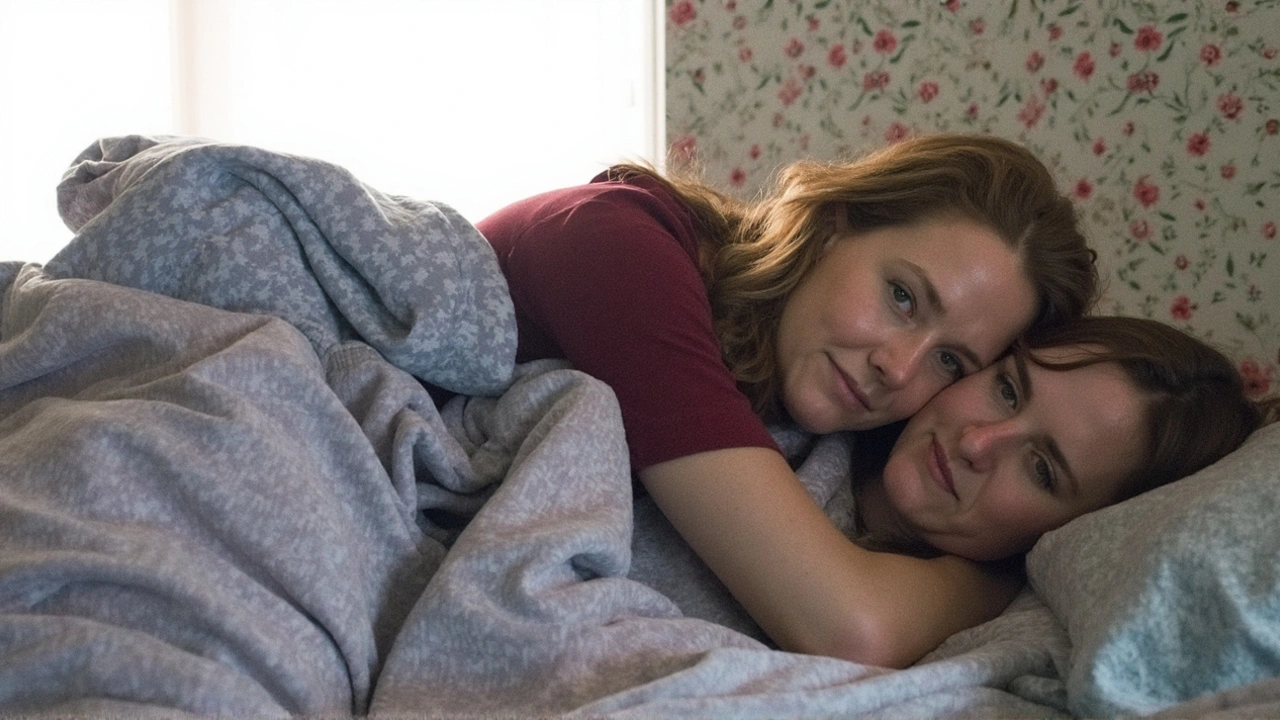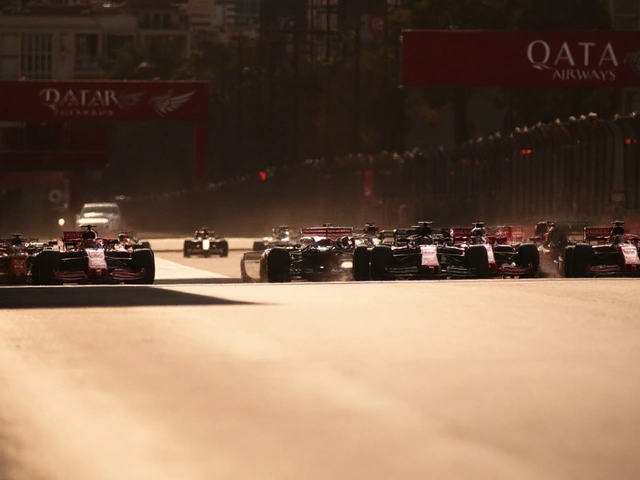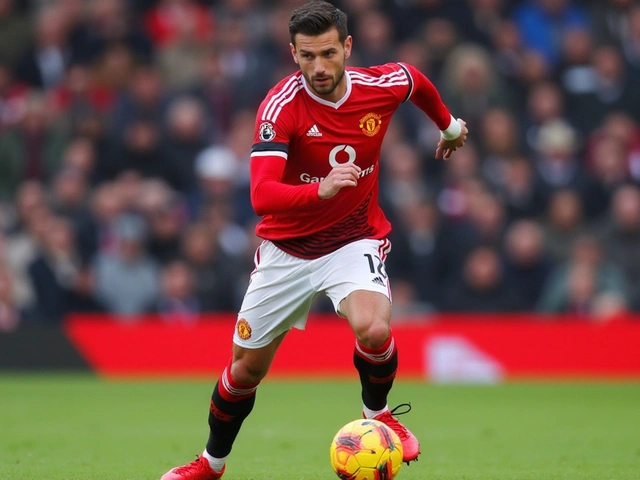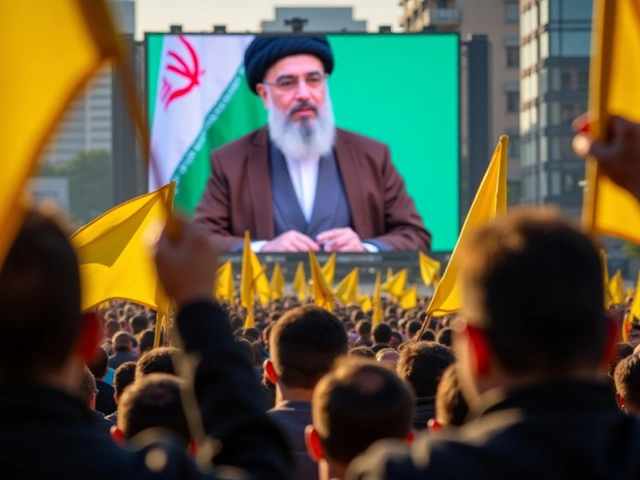Maternal Instincts on the Edge in Echo Valley
Every parent says they'd do anything for their child. But what happens when ‘anything’ drags you into a violent spiral you can’t escape? That’s the looming question in Echo Valley, the new thriller from director Michael Pearce, now streaming on Apple TV+. Julianne Moore leads as Kate Garrett, a woman who thought life on her rural horse farm would bring solace after her wife Patty’s death. Instead, she finds herself thrown into chaos when her daughter Claire, played by Sydney Sweeney, returns home drenched in blood and desperate for help.
Claire's sudden arrival isn’t just a family crisis. She’s been caught up in something far uglier—a confrontation with her boyfriend Ryan that leaves secrets buried and a drug dealer dangerously involved. The film wastes no time plunging viewers into this mess, pitting Kate’s fiercely protective instincts against the unforgiving reality unraveling around them. Kate’s not new to loss, but nothing has prepared her for the kind of sacrifices demanded by Claire’s latest choices.
Untangling Family Ties and Moral Compromises
What’s striking about Echo Valley isn’t just its suspenseful pacing or the sweeping, isolated landscapes. The heart of the story is the uneasy dance between mother and daughter. Kate and Claire aren’t just bound by blood—they’re wrapped up in guilt, grief, and the crushing responsibility of looking out for each other. As the body count rises and the involvement with drug dealer (played with cold menace by Domhnall Gleeson) gets riskier, the film exposes just how blurry the line can be between protecting someone and enabling disaster.
Moore captures the exhaustion and desperation of a parent pushed to her limits, while Sweeney dives into Claire’s restless, damage-prone energy. The supporting cast adds more muscle: Kyle MacLachlan brings a bracing tension as Kate’s ex-husband Richard, while Fiona Shaw and Albert Jones flesh out a family that’s sinking in secrets. Set far from civilization, the horse farm becomes a character of its own—a place dense with memory, loss, and those awful silences that say more than words ever could.
Pearce’s direction doesn’t let viewers off the hook with easy answers. Instead, every moral compromise pulls Kate and Claire in deeper, asking if loving someone is enough reason to risk everything. Themes of addiction and trauma simmer under the surface, never neat or tidy. The isolation tightens around the characters with every frame, ramping up the stakes until you almost feel breathless watching the consequences play out.
Billed at 1 hour 44 minutes, Echo Valley doesn’t pad its runtime with filler. Each scene pushes the story forward or peels back another layer between mother and daughter. While Pearce reunites with Sweeney after their work on The Wonder, it’s the raw intimacy between Sweeney and Moore that truly ignites the film—two generations, both wounded and warring, holding on by their fingernails as everything they thought they knew cracks wide open.
Echo Valley hit Apple TV+ on June 13, 2025, pulling viewers straight into the wreckage of family, loyalty, and the price of covering up what you can’t face.







12 Comments
Wow, another "deep" thriller where a mother saves the day-just what TV never ran out of. The premise feels recycled, yet the trailer tries hard to sound fresh.
Listen, this show actually nails the raw tension between Kate and Claire. The way they flip the mother‑daughter dynamic makes it feel like a real fight for survival.
The narrative structure, in its deliberate pacing, underscores the inexorable pull of familial duty. It is commendable how the script refrains from gratuitous sensationalism, instead allowing the characters' internal conflicts to drive the plot forward.
One cannot overlook the symbolic resonance of the isolated horse farm, which serves as a metaphor for the characters' emotional exile. The landscape not only isolates them physically but also amplifies the moral ambiguity that pervades their decisions, inviting viewers to contemplate the price of loyalty.
Love the way the tension builds without ever feeling cheap 😃 The chemistry between Moore and Sweeney adds a genuine heart‑pounding spark!
From a media‑studies perspective, Echo Valley exemplifies a convergence of genre hybridity and character‑driven narrative scaffolding, thereby fostering an elevated viewer engagement index.
Its mise‑en‑scene leverages diegetic sound design to underscore the psychological dissonance experienced by the protagonists, aligning auditory cues with thematic undercurrents of trauma.
The cinematographic palette, employing low‑key lighting, functions as a visual metaphor for the obscured moral terrain, effectively mapping the characters' internal conflicts onto the external environment.
Moreover, the screenplay's dialogic structure utilizes subtextual layering, enabling a multidimensional exploration of parental altruism versus self‑preservation.
By integrating a non‑linear flashback architecture, the film disrupts chronological expectations, prompting an active decoding process within the audience.
From a production economics standpoint, the modest budget allocation is strategically optimized through location shooting, which simultaneously reduces cost and enhances narrative authenticity.
Critically, the performances of Moore and Sweeney operate as a synergistic axis, where method acting techniques coalesce with improvisational spontaneity to generate palpable tension.
The antagonist's characterization, embodied by Gleeson, employs a deliberate antagonistic polarity, serving as a catalyst for the climactic denouement.
Strategically, the series' distribution on Apple TV+ capitalizes on the platform's subscriber base, ensuring maximal penetration within a niche demographic seeking high‑brow thriller content.
Consequently, viewership metrics are projected to surpass the platform's average retention rates for original programming.
In terms of cultural discourse, the series engages with contemporary dialogues surrounding maternal sacrifice, thereby resonating with sociocultural zeitgeists.
The narrative's ethical ambiguities invite scholarly debate on the justification of extreme protective measures in familial contexts.
Finally, the episode's pacing, calibrated at an average of 2.3 cuts per second, adheres to industry standards for tension maintenance without resorting to gratuitous violence.
While the series attempts to portray the complexity of parental sacrifice, it inadvertently glorifies reckless behavior under the guise of noble intention.
I can see where you're coming from, and at the same time, the show does a solid job of illustrating how trauma can distort decision‑making. It's a delicate balance between empathy for the characters and a critique of their choices.
This series really digs into the mother‑daughter bond it feels fresh and raw
Wow, what a layered narrative, isn’t it?, the way they weave themes of grief, addiction, and loyalty together is just… spectacular!
Survival is a question of perspective.
Frankly, this kind of American‑centric melodrama is exactly what the market needs to reinforce traditional family hierarchies.